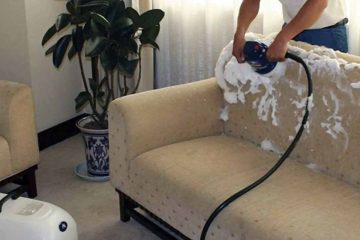The statement “age like fine wine” should be used more as a compliment. That’s partly because it’s not entirely true as far as wines are concerned.
And also because it’s a great compliment!
Not all wines age or get better with age. Some wine enthusiasts prefer cellaring their wines to enjoy the elements when they are more mature.
That sounds interesting, but it’s important to know which wines are worth enjoying that way.
However, some factors distinguish wines worth cellaring from others. We intend to explore those elements in this full guide. Grab a cup of wine, settle down, and keep scrolling. This won’t take long.
Characteristics Of Age-friendly Wines
Recognizing wines that improve with age depends on the following features:
Sugar
While you may find this surprising, a wine’s sugar content may actually be a pointer that it ages well.
Most people ignore the sugar content of wine and opt for white or red wines with less sugar.
However, a larger quantity of sugar actually serves as a preservative. That’s why wines with more sugar will likely last longer than those with less sugar.
So, look out for sweet wines as opposed to dry varieties.
Acidity
Generally, wines with higher acidity last longer than others with lesser acidity. Why? Over time, wines flatten out and lose acidity.
A wine with high acidity is more likely to withstand oxidization and other chemical changes that break it down over the years. Less acidity means a wine isn’t age-friendly.
Alcohol Level
In this case, alcohol may enhance aging or affect it, depending on the type of wine in question. For fortified wines, the higher the alcohol, the better.
The higher quantity of spirit acts as a stabilizer. Fortified wines’ alcohol content, often between 16% and 20%, allows them to age into fine wine.
Non-fortified wine is the opposite. In this case, alcohol is highly volatile. As such, wines with high alcohol content get vinegary when cellared. If you’d love to store a non-fortified wine for a long time, it’s best to age it with lower alcohol content.
Tannins
When a wine connoisseur describes a wine as supple and smooth, chances are good that it has something to do with aged tannins. Wines with more Tannins last longer and age beautifully.
What are Tannins to start with?
It’s a major phenolic compound, which is responsible for wine’s tastes, smells, color, and flavor. Tannins are structural compounds that come from wood barrels for oak-aged wines or grape skins for others.
As the wine ages, the tannins undergo polymerization. This process binds the tannins together in long chains, after which they settle at the bottom of the bottle as sediments.
Balanced tannins in wine become smoother over time, and the whole process mellows the wine’s taste. But a wine with unbalanced tannins hardly ages well.
Factors that Influence Aging
Wines have different potentials for maturation depending on their qualities. But some factors may also influence the aging, especially how you handle the wine while storing it. They include:
Temperature
Wines should be kept at about 50 degrees Fahrenheit. When you subject your wine to a hot storage unit, it matures faster than necessary. It also freezes out when the storage is too cold, affecting the drink’s quality.
Humidity
Another important factor is humidity. Anything below or over 60-70 % humidity negatively affects your wine cellaring process.
A highly humid atmosphere may dry out the wine’s natural cork, increasing the risk of oxygen contaminating the wine.
Fluctuations and Vibrations
Consistency in temperature or humidity is also key to maintaining your wine’s integrity in storage.
Keep your wine cellar at the appropriate temperature and humidity, and avoid visiting it often to prevent fluctuations.
Moreover, moving your wine around influences the overall outcome of your aging process.
As the wine matures, it becomes more delicate. At this stage, you must avoid vibrations at all costs to ensure the sediments settle.
Light and Airflow
Reduce your wine’s exposure to light. When building a cellar or storage space, use minimal lighting and avoid UV rays.
Finally, the atmosphere may influence the wine’s taste, disrupting its natural flavors and aroma. Keep the atmosphere free of any contamination.
Different Wines and How Well They Age
All wines don’t age equally. That’s hardly a surprise because wines have varying acidity levels, sweetness, tannins, and alcohol content. Red wines generally last longer than white wines.
We can attribute this feature to the fact that a large amount of tannins characterizes red wines.
White wines often last for about 10 years when stored. However, that’s not always the case. Let’s see how different wines age.
White Wines
Invest in wines with some phenolic bitterness if you want a white wine that ages with time.
And as we said earlier more acidity. Some oaked white wines age longer than other white wines because of higher tannin content in the barrel. For instance, some Chardonnay varieties.
Red Wines
For red wines, the quantity of tannins is the least of your concerns. Focus more on the acidity level. More tannins with less acidity still wouldn’t make for higher aging potential.
More acidity and sufficient tannins might just be the holy grail of aging. You won’t be bothered about the wine tasting flat after a short time.
Fortified Wines and Dessert Wines
Fortified wines have a higher alcohol level, stabilizing them to make them age-friendly. Dessert wines also contain more preservatives, i.e., sugar.
These two wines have higher aging potential compared to others.
Let’s make this a bit easier; here are some wines and their aging ability:
Viognier: 1-5 years
Chardonnay: About 3-10 years
Chenin Blanc: 1-7
White Bordeaux: 3-5
Pinot Gris: 3 years
Sauvignon Blanc: 4 years
Merlot: 7-17 years
Pinot Noir: 10 years
Cabernet Sauvignon: 10-20
Tempranillo- 10-20 years
Nebbiolo: 20 years
German Riesling: 15-25 years
French Sauternes: 15-25 years
Sherry: 75 years
Port: 50-100 years
Note that these are general aging potentials. Consult more through professional reviews to discover the actual aging window for specific vintage wines from your collection.
Wine Aged to Perfection
It’s possible to age like fine wine and store your wine to age finely. That’s a win-win. Well, it’s all about finding the right wine to cellar.
Our full guide will point you in the direction of wines worth aging.
Planning to age your wine for your golden jubilee? Well, you’d better start the process now with the right wine.
When it’s time to take a swirl, you’ll experience the wholeness embodied in aged wine.


